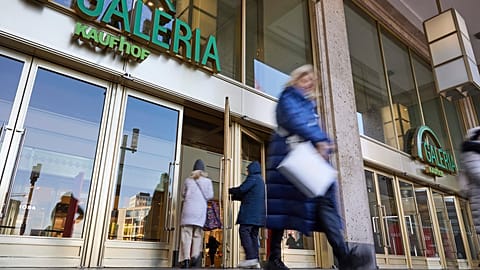Turkey’s industrial production fell in November 2023 due to declines in the mining and quarrying sectors.
Turkey’s year-on-year industrial production numbers for November last year came in at 0.2%, down from 1.3% in the same month in 2022. This was the lowest since June 2023, mainly due to mining and quarrying production decreasing to 3.5% from 6.8% in October 2023, along with manufacturing also slipping to 0.1% from 1.3% the previous month.
 ADVERTISEMENT
ADVERTISEMENT
 ADVERTISEMENT
ADVERTISEMENT
However, air conditioning, gas, steam and electricity production increased from 3.9% in October 2023 to 4.5% in November. The month-on-month industrial production clocked in at -1.4% from -0.3% in October 2023.
The country also still struggles with an exceedingly high cost of input materials. This has led to several factories shutting down or reducing production, while the ones still functional have been forced to pass on costs to consumers.
However, with consumers themselves facing higher bills and cost of living, demand for most goods apart from essentials has significantly weakened, in turn leading to production cuts.
The unemployment rate for November 2023 was 9%, a step up from the 11-year low of 8.6% seen in October 2023. Employment levels declined by 236,000 to 31.611 million, whereas employment activity slipped to 52.9% in November, from 53.1% in October.
The employment rate also slid to 48.2% from 48.6% in October, whereas unemployment for 15 to 24 year-olds increased 0.3% to 16.5%.
Why is Turkey's inflation so high?
Turkey has been facing increasingly high inflation in the last few months, with house rents especially out of reach for most of the population, including the new central bank governor, Hafize Gaye Erkan.
Erkan recently revealed: “We haven’t found a home in Istanbul. It’s terribly expensive. We’ve moved in with my parents. Is it possible that Istanbul has got more expensive than Manhattan?”
This has mainly been due to Turkey’s reluctance to raise interest rates for the longest time, despite warning signs of inflation, with the President Recep Tayyip Erdogan maintaining the controversial view that reducing interest rates would indeed help tame inflation.
This is at odds with other global views and the approaches of most central banks, such as the US Federal Reserve, the European Central Bank and the Bank of England.
The country had introduced a different economic model back in September 2021, to test out their monetary policy theory as well as put the limelight on investment, growth and exports. However, following this paradigm shift, inflation quickly soared to 86% in October 2022, which was the highest in Erdogan’s presidency so far.

















